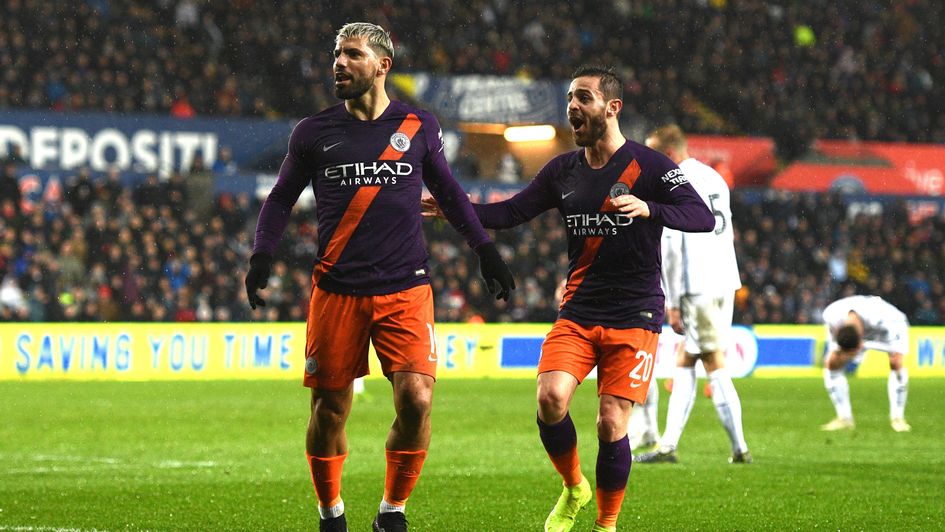Image Credit [Sporting Life]
Manchester City’s comeback against Swansea was mired in controversy – with VAR at the centre of it.
Swansea’s best first-half performance of the season, and in several years, saw the Welsh side go 2-0 up against Manchester City, the defending Premier League champions, in the quarter-finals of the FA Cup.
The hosts knew that it would be a difficult task holding onto that half-time lead, no matter how impressive the first 45 had been. Manchester City ramped up the pressure in the second half, bringing on Sergio Aguero and Raheem Sterling. City managed to level the scores through Bernado Silva’s world-class finish and a converted penalty.
In the 88th minute, Sergio Aguero popped up to score an outstanding header in what was to be the winning goal. It, however, was several yards offside, and, yet again, VAR would have disallowed the goal, without any major complaints from the City fans and players. Whether or not Manchester City would have gone on to win the game anyway, despite these decisions, is of course something we will never know. But these VAR incidents ruined what was, indeed, a great game of football and have ushered in more criticism of VAR.
These criticisms, however, are not that VAR was used, they are that it wasn’t used. Indeed, the main point of contention was that Swansea, by dint of being a Championship side, were not allowed to use VAR. Earlier on in the season, the FA had decided that only Premier League teams were allowed to use this relatively new technology in the FA Cup. Indeed, the Wolves – Manchester United match, played on the same day, had VAR in operation.
This shows that teams do not operate on a level playing field, and thus makes the defeat all the more sour. Either all teams should be allowed to use VAR, or none. Moreover, the Liberty Stadium has both the capabilities of using VAR and the precedent of having done so before, having used VAR for last season’s quarter final match in the FA Cup against Tottenham. There would have been no additional financial constraints in setting up the technology, for example, one of the arguments used to say why only Premier League teams should, at this early stage of the technology, use it.
Pep Guardiola, after the match, apologised directly to Swansea. He said that “you have to ask the authorities why VAR is not here… I am sorry. I don’t like to win games when decisions are wrong. It’s not easy.” With the FA Semi-Finals featuring Wolves, Brighton and Watford, the FA’s decision not to allow VAR has cost the Swans the best chance they will ever have to even be in with a shout of winning the FA Cup, six years after winning the League Cup.
There are sound logistical and economic problems with VAR. VAR is also not to everyone’s liking, and wrong decisions will still be made even with it. However, VAR being used in some matches, and not others, is simply not fair. In an age where the Premier League is getting richer and richer, whilst Football League clubs are having financial difficulties, there seems to be a growing gap between the English football elite and the rest of us.
Whilst the FA Cup may be the most romantic club competition in the world, and there are still many moments of “the magic of the cup”, it is not always the fairest.

